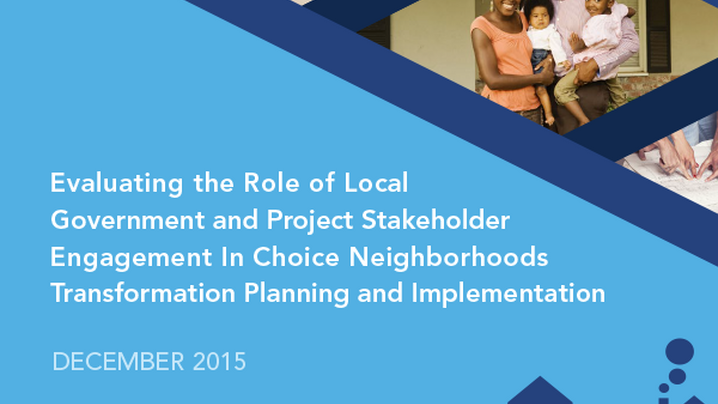
This report first appeared as an ICMA media release for the new HUD Choice Neighborhoods report.
A new research report published by the International City/County Management Association (ICMA) explores the role of local governments and citizen engagement in transforming distressed neighborhoods.
The lack of affordable housing, combined with the ongoing challenges associated with older, obsolete, and rundown housing, have resulted in distressed neighborhoods that offer little opportunity for residents. These challenges have created a housing crisis that affects the economic health and quality of life among many U.S. communities.
Public housing and subsidized rentals are a way of life for many families in cities throughout much of the U.S. and it has become clear that traditional approaches to neighborhood and community planning are not producing the desired results. Evaluating the Role of Local Government and Project Stakeholder Engagement in Choice Neighborhoods Transformation Planning and Implementation summarizes ICMA’s three-year study of Salisbury, North Carolina; Suffolk, Virginia; and Norfolk, Virginia, and their use of grant funds from the U.S. Department of Housing and Urban Development (HUD) to implement a Choice Neighborhoods Transformation Plan. This comprehensive approach to neighborhood planning takes into account the economic and social needs of residents in public and assisted housing beyond those of their physical environment.
“The broken window theory holds that if you maintain the built environment in a neighborhood, you can prevent more serious crime and social disorder,” said Cory Fleming, an ICMA researcher and lead author of the report. “What this study indicates is that it takes a more comprehensive approach to planning for neighborhood redevelopment to truly improve lives. Planning for the physical appearance of a neighborhood is important, but equally important is engaging citizens to learn what programs and services they need.”
Key among the report’s 13 findings is the requirement that local governments consider the economic and social needs of public housing residents to ensure successful transformation of the greater neighborhood. Traditional neighborhood improvement planning focuses largely on the built environment. Based on the three report case studies, however, improving the lives of public housing and neighborhood residents requires strategic planning around the delivery of social and economic services as well.
SUBSCRIBE VIA EMAIL TO THE ICMA|BLOG. |
|---|
“Transformation planning requires considering how to create new economic and social opportunities for neighborhood residents,” Ms. Fleming continued. “Local governments have an important role to play in identifying neighborhood needs and engaging stakeholders including residents, nonprofit organizations, and community groups to create lasting change.”
Other study findings focused on
- Factors in achieving success—Generating excitement around the neighborhood transformation plan, developing an organizational structure for planning, and determining what services are most needed in troubled neighborhoods;
- The role of local government--Identifying and understanding the needs of residents, engaging neighborhoods, and promoting the transformation plan goals;
- The role of partners and other stakeholders--Building relationships within small communities and incorporating smaller projects into the transformation plan; and
- The role of resident engagement—Supporting and training neighborhood leaders, extending personal invitations to residents to become involved, establishing trust among individuals most directly impacted by the plan, and establishing formal and informal ways through which residents can become engaged.
Funding for the study was provided by the HUD Choice Neighborhoods Demonstration Small Research Grants Program. Click here to download a free copy of the report.
New, Reduced Membership Dues
A new, reduced dues rate is available for CAOs/ACAOs, along with additional discounts for those in smaller communities, has been implemented. Learn more and be sure to join or renew today!
